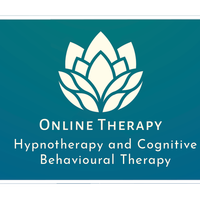Trauma and Post-Traumatic Stress Disorder
As a therapist i have spoken to many trauma survivors and almost all of them have at some point said "...But i didn't have it as bad as some people" and then went on to talk about how other traumas are worse even the most traumatised, most abused and most psychologically injured clients will say this. One of the reasons for this can be because they have been made to believe that they are unworthy of care or they had become so used to the trauma that they have become desensitised to it but one of the most common responses to trauma is dissociating.
Are you dissociating?
Dissociating is one of the most common responses to abuse and trauma. It involves feeling numb, detached or unreal.
You may be dissociating if you:
- Find yourself staring at one spot not thinking anything
- Feeling completely numb
- Feel like you're not really in your body, like you're watching yourself in a movie
- Feeling suddenly light headed or dizzy
- Lose the plot of the show or conversation you were focused on
- Feel as if you're not quite real, like your in a dream
- Feel like you're floating
- Suddenly feel like you're not part of the world around you
- Feel detached and far away from other people, who may seem mechanical or unreal to you
- Easily startled when someone tries to get your attention
- Completely forgetting what your thinking just a moment ago
- Suddenly duck, flinch of cover yourself as if your about to be hurt for no reason
- Forgetting simple things about yourself like your date of birth
- Rocking back and forth
- Becoming very focused on small or trivial objects or events
- Find that voices, sounds, writing seen far away and you have trouble understanding them
- Flashbacks
- Feel like your body doesn't belong to you
What should you do if you think you have a dissociative disorder?
Sometimes a physical examination might need to be done to determine if their is any head injuries, alchohol or drug misuse that is causing the dissociative behaviour, however it is often determined by a therapist who will ask you various questions about how you are feeling. It is important to note that some people have come to me and have dissociated so much that they can't remember the traumatic experience and so it can take some time exploring triggers, memories and feelings to learn what it is that was traumatic in your life.
Talking therapies are often recommended for dissociative disorders. The aim of talking therapies is to help you cope with the underlying cause of the symptoms and to learn and practice techniques to manage periods of feeling disconnected. Sometimes anti-depressants will be recommended to help relieve depression, anxiety and panic attacks associated with the disorder.
For more information on online and phone therapy please contact Carlee at info@online-therapy.uk or call 07540363731



